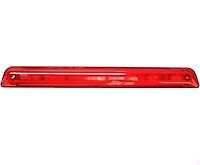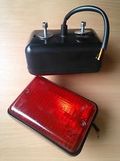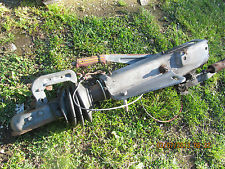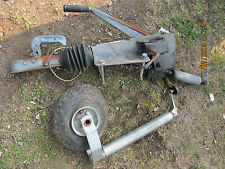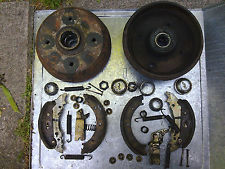Caravan Brake
Cant Find What Your Looking For? Use The Search Box.
|
Contact Us Below Home
|
|
Caravan Brakes
Caravan Brakes Spares Page Or Would You Like To Search For The Caravan Brakes You Need By Area Or If You Would Rather Search By Manufacturer
Links To All Parts Pages.
Links To All Parts Pages.
Caravan Brake
Below you can read sample requests for caravan brake spares and other caravan parts and accessories.
Caravan Brakes Spares
Hi I'm after caravan brake spares, a hub/drum and caravan tyres for a (I think ) late 70s early 80s sprite alpine I have photos but can't upload them.
Hello, can you help me, I need a brake drum for a 2 berth Bailey 1997 don't know if other caravan brake drums fit it, the measurements are 200mm x 55mm approx. 4 stud. The stud hole measurements are 100mm from centre to centre.
Hello, can you help me, I need a brake drum for a 2 berth Bailey 1997 don't know if other caravan brake drums fit it, the measurements are 200mm x 55mm approx. 4 stud. The stud hole measurements are 100mm from centre to centre.
Overrun Brakes For Caravans
Bailey Ranger 1998 470/4 Hi, I'm looking for overrun brakes for caravans and 2 large and 1 medium window stays, also in the shower the cowling on which the taps mount is broken. Also after caravan brake spares. Have you got any of those? I can send a picture of this cowling if you want to your mobile number or an email address. Thanks and regards.
Hello, have you got a brake drum for a 1997 Bailey 2 berth. thanks.
Hello, have you got a brake drum for a 1997 Bailey 2 berth. thanks.
Wheel Brakes For Caravans
Elddis Oddesy 2002. I have a 462. I'm looking for wheel brakes for caravans and the roof vent in the centre of the van in front of the wardrobe and the roof vent in the washroom.
There are 2 circular lights on the ceiling, one or more would be welcome. If the taps are original I would be interested in those as well.
There are 2 circular lights on the ceiling, one or more would be welcome. If the taps are original I would be interested in those as well.
Overrun Brakes Caravan
Hi I’m looking for overrun brakes caravan, a front nearside window for a compass connoisseur 505 2005/6 the van window opening is 36 cm between the rubber seal and the window external measurement is 87 cm on the long side and 82 cm on the short side cheers.
Hi, looking for caravan brake spares in particular a set of braked twin axle suspension units, cheers
Hi, looking for caravan brake spares in particular a set of braked twin axle suspension units, cheers
Caravan Axles And Brakes
Can you do me a favour and send me a list of caravan chassis and caravan axles and brakes you have for sale please, I am going to make a car transporter for my off road rally car, the car is 12ft long so a 14 ft trailer should be big enough I think, I will also need tail lights from one of your scrap caravans thanks.
I am looking for a few bits for repairing my caravan it's a Sprite finesse 2 berth, complete caravan door and frame with lock and keys, caravan door bin, rear light/indicators some caravan brake spares and a
kitchen tap with pump.
I am looking for a few bits for repairing my caravan it's a Sprite finesse 2 berth, complete caravan door and frame with lock and keys, caravan door bin, rear light/indicators some caravan brake spares and a
kitchen tap with pump.
Bpw Caravan Brakes
Hi I've got a static caravan needing taken away, don't want nothing for it just removed. I live in Clackmannan and can i find a front central window from a Swift Corniche caravan from year 2000. Kind regards.
Looking for bpw caravan brakes and a bronze tinted window for Roller team 2003 model. Window size 785x385mm. No need for frames and looking for a belfast type of sink from a coachman caravan 2012 to 2019 please.
Looking for bpw caravan brakes and a bronze tinted window for Roller team 2003 model. Window size 785x385mm. No need for frames and looking for a belfast type of sink from a coachman caravan 2012 to 2019 please.
Caravan Disc Brakes
Hi, I'm looking at buying a 1974 Abbey Oxford caravan but have been told it needs replacement brake shoes, springs, shocks and tyres. Have you got any of these parts or are able to get parts for this age caravan? Any help or advice would be very much appreciated. Many thanks.
Hello, do you have any caravan disc brakes and side windows for a 2001 Swift Gazelle motorhome ? Polyplastic black 151cm x 62cm. My friend is after a front centre blind assembly for a Lunar Alaria caravan 2017 manufacture. Many thanks.
Hello, do you have any caravan disc brakes and side windows for a 2001 Swift Gazelle motorhome ? Polyplastic black 151cm x 62cm. My friend is after a front centre blind assembly for a Lunar Alaria caravan 2017 manufacture. Many thanks.
Alko Aks 3004 Friction Pads
Caravan Brake Spares Page Or Would You Like To Search For The Alko Aks 3004 Friction Pads You Need By Area Or If You Would Rather Search By Manufacturer
Links To All Parts Pages.
Home
Links To All Parts Pages.
Home
Back To Top of Caravan Brake
| Caravan Suspension Spares | Caravan Chassis Aluminium And Galvanised | Caravan Spare Wheels | Alko Wheel Lock | Caravan Spare Wheel Covers | Jockey Wheels | Caravan Spare Wheel Holder | Caravan Brake Spares | Caravan Spare Tyres |
| Caravan Suspension Spares | Caravan Chassis Aluminium And Galvanised | Caravan Spare Wheels | Alko Wheel Lock | Caravan Spare Wheel Covers | Jockey Wheels | Caravan Spare Wheel Holder | Caravan Brake Spares | Caravan Spare Tyres |
|
|
|


